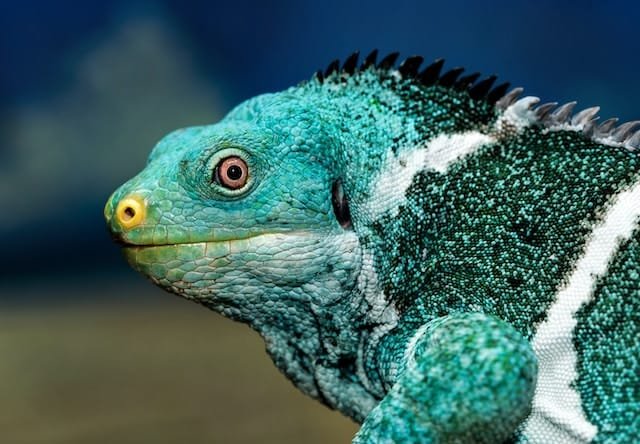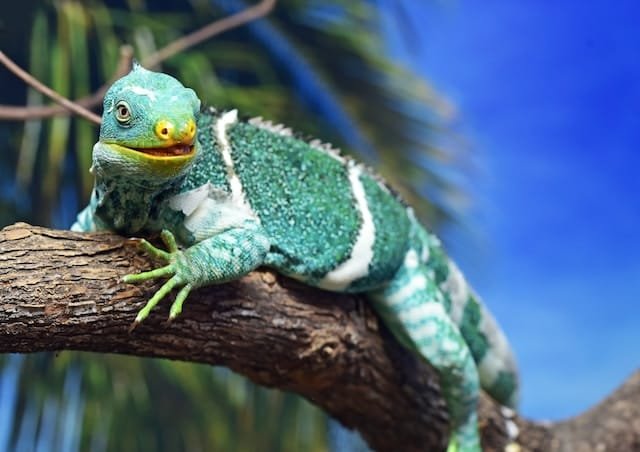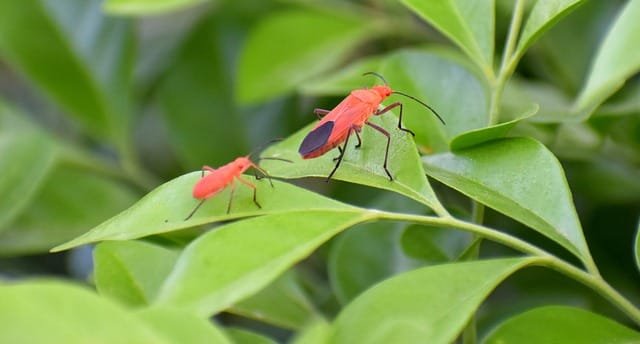Bearded dragons are known for their diverse diet, which can include insects, vegetables, and fruits. However, not all insects are safe for them to consume. One insect that may catch the attention of bearded dragon owners is the boxelder bug. In this article, we will explore whether or not bearded dragons can eat boxelder bugs.
Boxelder bugs are a common nuisance pest that can be found in many regions of North America. While they are not harmful to humans, they can cause damage to plants and trees. Some people may wonder if boxelder bugs are a safe and nutritious food source for their bearded dragons. In the following paragraphs, we will examine the nutritional value of boxelder bugs and whether or not bearded dragons can safely consume them.

Understanding Boxelder Bugs
Boxelder bugs are common insects that belong to the family Rhopalidae. They are typically found in North America and are known for their distinctive red and black coloration. These bugs are often found in large groups on trees, particularly boxelder trees, which is where they get their name from.
Boxelder bugs are considered a nuisance pest because they can invade homes in large numbers during the fall and winter months. They are not harmful to humans or pets, but they can be a nuisance due to their presence and their tendency to leave behind a foul odor.
In terms of their nutritional value for bearded dragons, boxelder bugs are not a good source of nutrition. They are not toxic but are not a good choice to feed to your bearded dragon due to their low nutritional content.
It is important to note that while boxelder bugs are not toxic to bearded dragons, they may have been exposed to pesticides or other chemicals if they were found inside a home. It is best to avoid feeding your bearded dragon any insects that may have been exposed to chemicals.
Overall, boxelder bugs are not a recommended food source for bearded dragons due to their low nutritional value and potential exposure to chemicals.
Bearded Dragons’ Dietary Needs
As responsible pet owners, we must ensure that our bearded dragons receive a healthy and balanced diet. Bearded dragons are omnivorous, meaning they eat both plant and animal matter. In the wild, they primarily feed on insects, but they also consume vegetables, fruits, and flowers.
When it comes to feeding our bearded dragons, it is important to provide them with a variety of foods to ensure they receive all the necessary nutrients. Some of the key nutrients that bearded dragons require include protein, calcium, and vitamins.
Protein is essential for muscle growth and repair, and bearded dragons require a high-protein diet. Insects such as crickets, mealworms, and waxworms are excellent sources of protein for bearded dragons.
Calcium is crucial for the growth and maintenance of strong bones and teeth. Bearded dragons require a diet that is high in calcium, and they also need access to UVB lighting to help them absorb the calcium. Foods that are high in calcium include dark leafy greens, such as kale and collard greens, as well as calcium-fortified insects.
Vitamins are also important for bearded dragons, particularly vitamin D3. Bearded dragons need vitamin D3 to help them absorb calcium. Foods that are high in vitamin D3 include leafy greens, such as dandelion greens, as well as insects that have been fed a vitamin-rich diet.
While bearded dragons can eat a variety of insects, it is important to avoid feeding them insects that are high in fat or that have been exposed to pesticides. It is also important to avoid feeding them wild-caught insects, as these can carry parasites and diseases.
In conclusion, providing our bearded dragons with a healthy and balanced diet is essential for their health and well-being. By offering them a variety of foods that are high in protein, calcium, and vitamins, we can ensure that they receive all the necessary nutrients to thrive.
Can Bearded Dragons Eat Boxelder Bugs
We know that bearded dragons are omnivorous and can eat a variety of insects, fruits, and vegetables. But, can they eat boxelder bugs?
Boxelder bugs are insects that are commonly found in North America. They are known for their black and red coloration and their tendency to gather in large groups.
After conducting research, we have found that boxelder bugs are not toxic to bearded dragons. However, they are not a recommended food source for your pet.
Boxelder bugs do not have a lot of nutritional value and can cause digestive problems if consumed in large quantities. In addition, they are known to emit a foul odor when threatened, which can be unpleasant for both you and your bearded dragon.
If you are looking for an alternative insect to feed your bearded dragon, we recommend crickets, mealworms, and dubia roaches. These insects are readily available at pet stores and provide a good source of protein for your pet.
In conclusion, while bearded dragons can eat boxelder bugs, it is not recommended due to their lack of nutritional value and potential digestive issues. It is best to stick to a diet of insects, fruits, and vegetables that are known to be safe and beneficial for your pet.

Potential Risks and Consequences
While boxelder bugs are not toxic to bearded dragons, there are still potential risks and consequences to consider before feeding them to your pet.
One risk is that boxelder bugs may carry pesticides or other chemicals that could be harmful to your bearded dragon. These bugs are often found around residential areas and may have come into contact with pesticides or other chemicals used in and around homes.
Another risk is that boxelder bugs may carry parasites or diseases that could be harmful to your bearded dragon. While boxelder bugs are not known to carry any diseases that can be transmitted to humans, they may still carry diseases that could be harmful to your pet.
Feeding your bearded dragon too many boxelder bugs may also cause digestive issues. Boxelder bugs have a hard exoskeleton that can be difficult for bearded dragons to digest. Eating too many of these bugs may lead to impaction or other digestive problems.
In addition, some bearded dragons may simply not be interested in eating boxelder bugs. If your pet refuses to eat these bugs, do not force them to do so. It is important to provide a varied diet for your bearded dragon, but it is also important to respect their individual preferences and tastes.
Overall, while boxelder bugs may be a potential food source for bearded dragons, it is important to consider the potential risks and consequences before feeding them to your pet.
Safe Alternatives for Bearded Dragons
When it comes to feeding our bearded dragons, it’s important to provide them with a balanced diet that meets their nutritional needs. While insects are a great source of protein, not all insects are safe for our pets to consume. Boxelder bugs, for example, should be avoided as they can be toxic to bearded dragons.
Fortunately, there are many safe alternatives that we can offer to our bearded dragons. Here are some options:
Crickets
Crickets are a staple food for bearded dragons and are a great source of protein. They are also readily available at most pet stores. When feeding crickets, it’s important to gut-load them first to ensure that they are providing the necessary nutrients for our pets.
Dubia Roaches
Dubia roaches are another great source of protein for bearded dragons. They are low in fat and high in calcium, which makes them an ideal food for our pets. They are also easy to digest, which is important for bearded dragons with digestive issues.
Mealworms
Mealworms are a popular food choice for bearded dragons. They are high in protein and easy to digest. However, they should be fed in moderation as they are also high in fat.
Superworms
Superworms are another option for bearded dragons. They are high in protein and low in fat, making them a great addition to our pets’ diet. However, like mealworms, they should be fed in moderation.
In conclusion, while boxelder bugs should be avoided, there are many safe alternatives that we can offer to our bearded dragons. By providing our pets with a balanced diet that meets their nutritional needs, we can ensure that they live long and healthy lives.
Proper Feeding Techniques for Bearded Dragons
When it comes to feeding bearded dragons, it is important to provide them with a balanced and nutritious diet. Here are some proper feeding techniques to keep in mind:
Variety is Key
Bearded dragons require a variety of foods to ensure they are getting all the necessary nutrients. We recommend providing a mix of vegetables, fruits, and insects. Some examples of suitable vegetables include kale, collard greens, and carrots. Fruits like strawberries, blueberries, and mangoes can also be given in moderation. Insects such as crickets, mealworms, and dubia roaches are great sources of protein and should make up a significant portion of their diet.
Gut-Loading Insects
When feeding insects to your bearded dragon, it is important to gut-load them first. This means feeding the insects a nutritious diet before offering them to your pet. This ensures that your bearded dragon is getting the most out of their meal.
Calcium and Vitamin Supplements
Bearded dragons require calcium and vitamin supplements to maintain good health. We recommend dusting their insects with a calcium supplement at least once a week and a multivitamin supplement once a month. It is important not to overdo it with supplements, as this can lead to health problems.
Proper Feeding Schedule
Bearded dragons should be fed once a day, and their meals should be appropriately sized based on their age and size. Younger dragons require more protein, while older dragons need more vegetables. It is also important to monitor your bearded dragon’s weight and adjust their feeding schedule accordingly.
By following these proper feeding techniques, you can ensure that your bearded dragon is getting all the necessary nutrients to live a healthy and happy life.
Conclusion
In conclusion, while boxelder bugs are not toxic to bearded dragons, they should not be a regular part of their diet. While they may provide some nutritional value, they also carry the risk of transmitting harmful bacteria and parasites to your pet.
Therefore, it is best to avoid feeding boxelder bugs to your bearded dragon altogether. Instead, stick to a diet of commercially available insects such as crickets, mealworms, and dubia roaches, as well as fresh vegetables and fruits.
Remember to always provide a varied and balanced diet for your bearded dragon to ensure their health and longevity. If you have any concerns about your pet’s diet or health, consult with a veterinarian who specializes in reptiles.
Overall, while boxelder bugs may seem like a tempting snack for your bearded dragon, it is best to err on the side of caution and avoid feeding them to your pet altogether.

Frequently Asked Questions
Can bearded dragons safely consume boxelder bugs?
Yes, bearded dragons can consume boxelder bugs. However, it is important to note that boxelder bugs should not be the primary source of food for bearded dragons. They should be fed a balanced diet consisting of vegetables, fruits, and insects.
Are boxelder bugs harmful to bearded dragons?
Boxelder bugs are not harmful to bearded dragons when consumed in moderation. However, they should not be the sole source of food for bearded dragons as they do not provide all the necessary nutrients.
What are the risks of feeding boxelder bugs to bearded dragons?
Feeding boxelder bugs to bearded dragons can pose a risk of choking if the bugs are too large. Additionally, if the bugs are not properly cleaned, they can carry harmful bacteria that can make your bearded dragon sick.
Do boxelder bugs contain any toxins that can harm bearded dragons?
Boxelder bugs do not contain any toxins that can harm bearded dragons. However, it is important to ensure that the bugs are not exposed to any pesticides or chemicals before feeding them to your bearded dragon.
Are there any benefits to feeding boxelder bugs to bearded dragons?
Boxelder bugs can provide a source of protein for bearded dragons. However, they should not be relied upon as the primary source of protein.
What other insects can bearded dragons safely eat besides boxelder bugs?
Bearded dragons can safely consume a variety of insects including crickets, mealworms, and dubia roaches. It is important to ensure that the insects are gut-loaded and dusted with calcium and vitamin supplements before feeding them to your bearded dragon.
I, Mark Antonelli am highly interested in pet care tips. The experiences I gained through university life in animal sciences were also helpful to identify the best tricks for caring for and feeding varying kinds of pets. I know the majority of people love to own a pet. Yet, there is a guilty of owing a Bearded Dragon due to a lack of information about how much friendly and peaceful they are. I thought of filling this gap with detailed writings about this Pogona genus Bearded Dragon. All my team is also giving me great support to fulfil my mission. Hope you will enjoy the journey with us.

